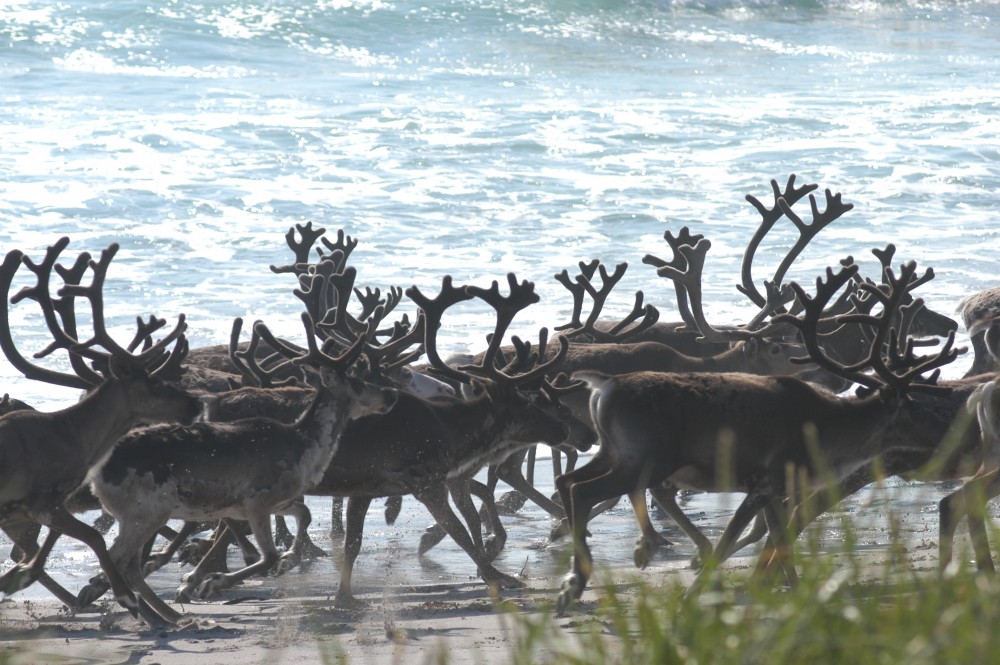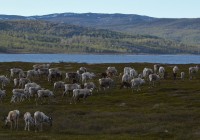
Second year in row, big numbers of wild reindeer calves are found dead along banks of great river Khatanga
ADVERTISEMENT
A state of emergency was in mid-August declared in Khatanga, the small town in Russia’s far northern Taymyr Peninsula. More than 1,200 dead reindeer had been found scattered on the river banks, and local authorities informed that the important fresh water source could have become contaminated.
The biggest share of the dead animals were calves, many of them only few weeks old. The number of wild reindeer has over the last year dropped significantly in several north Russian regions and the animal could ultimately end up on the list of endangered species. The wild reindeer separate from the far bigger herds of domesticated reindeer that are accompanied by herders.
The tragedy happened when a large flock of migrating animals in early August crossed the river that is up to two kilometers wide. Local sources told journalists that poachers had fired shots at the herd and consequently were to blame for the mass death. Several of the dead animals reportedly had bullet wounds. Local prosecutors have now started a criminal case, a local TV station informs.
A local environmental inspector told regional news agency NGS24.RU that he saw several tens of shot animals on site and that he reported to police. However, shortly later the animals with gunshots had been removed, and the inspector now says that he is threatened with dismissal by unnamed “third parts”.
But poaching was hardly the only reason for the mass death along the Khatanga River.
The crossing of the big river is among the most risky parts on the migrating route of the wild reindeer, and many of the weakest animals every year lose their life in the ice-cold water.
The problem has aggravated over the last years as the flocks have started migrating far earlier than before. According to WWF Russia, the animals in 2020 set out from the inland pasture lands to the coastal areas about three weeks earlier than normal. Also this year, the long and physically demanding migration started very early.
ADVERTISEMENT
The early migration is highly risky for the reindeer calves, many of which have been born only few weeks earlier.
According to WWF, climate change is a key reason for the early migration. Temperatures in the Taymyr region have over the last years been several degrees higher than normal.
Meanwhile, the Ministry of Environment in the Krasnoyarsk region says that the reindeer calves might have been hurt by the big crowd during the long swim, or they might not have had the sufficient strength. They might also have been frightened by nearby ship traffic, the ministry informs.
The ministry also says that the large flock might have lost their sense of orientation because of low visibility caused by smoke from wild fires in Yakutia.
All the dead animals died of drowning, regional minister Pavel Borzykh says in a statement. He does not even mention the presence of poachers.
ADVERTISEMENT
The Barents Observer Newsletter
After confirming you're a real person, you can write your email below and we include you to the subscription list.




